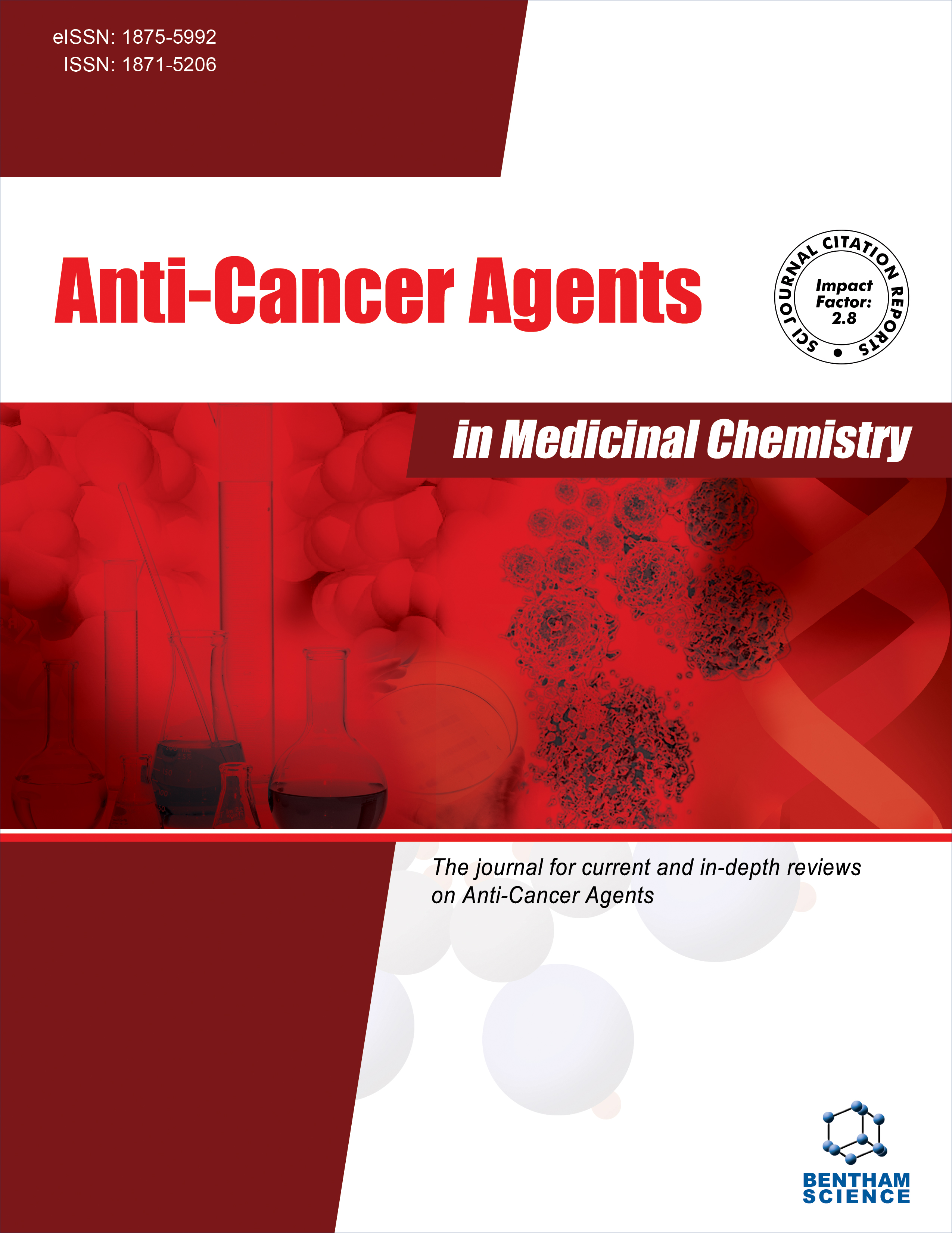-
oa Editorial [Hot Topic: Multidrug Resistance: Genes, Polymorphisms, Biologic Effects, Reversal and Treatment in Cancer Chemotherapy (Guest Editor: Jeanny B. Aragon-Ching)]
- Source: Anti-Cancer Agents in Medicinal Chemistry, Volume 10, Issue 8, Oct 2010, p. 582 - 582
-
- 01 Oct 2010
Abstract
Multidrug resistance has been felt to be one of the mechanisms by which chemotherapy drugs develop resistance, and hence, failure in cancer drug therapy. Several investigations through the years have been undertaken to identify the genes involved in modulating multidrug resistance. Several drug-resistant proteins and genes have been since discovered, including variants in genes that encode for different drug metabolizing enzymes. Furthermore, of the 48 ATP binding cassette transporters, several have been described to have a role in drug resistance, including ABCB1 (P-glycoprotein, Pgp), ABCG2 (breast cancer resistance protein), and multidrug resistance-associated protein 1 (MRP1). Pgp has historically been the prototype that correlated with resistance of varying cancer cell lines and correlated with the expression of the protein, encoded by MDR-1. However, despite multitude of studies addressing its significance and efforts undertaken to effect its reversal, clinical trials on Pgp inhibition has resulted in failure of overcoming resistance. In this thematic issue, the role of pharmacogenomics in drug metabolism, clinical effects, toxicity, and risks it confers to the development of cancer is actively explored. Lee presents an overview of pharmacogenetics and pharmacogenomics as well as the role gene polymorphisms play especially with regard to the disposition of certain cytotoxic chemotherapy drugs with the goal of ultimately providing pharmacogenetic testing for individualizing treatment regimens for patients. Drug resistance has been described not only in cytotoxic drugs but has been an emerging phenomenon with targeted agents and angiogenesis inhibitors. Tavakoli and Aragon-Ching discusses the mechanisms of drug resistance with the use of angiogenesis inhibitors and explores the pre-clinical and clinical trials that underlie the processes resulting in emergence of resistance to these agents. Lokesh et al. provides a comprehensive review of anti-cancer therapeutic agents approved by the United States Food and Drug Administration within the past decade, as it relates to the role of drug transporters as a mechanism of resistance. In as much as genetic polymorphisms are thought to confer drug resistance, certain drug transporter gene polymorphisms have been shown to be related to risk of developing disease. The impact of a specific ATP binding cassette (ABC) transporter, ABCC11, is explored by Toyoda and Ishikawa, as it relates to the apocrine phenotype, response to chemotherapy, and breast cancer risk. Finally, Robey et al. offers a thoughtprovoking view regarding the status of ABC transporters as it relates to mechanisms of drug resistance and the potential role of drug transporters as therapeutic targets for central nervous system treatment. Furthermore, the authors discuss an in-depth review of the complexity and pitfalls of the P-glycoprotein hypothesis -a long held view that inhibition of the Pgp may cause reversal of drug resistance. Several challenges exist in the quest to overcome the ever present problem of drug resistance. These articles represent a tremendous effort from the contributors to provide a comprehensive review of the field of multidrug resistance and underscore the need for continuing investigation in this field of cancer research.


